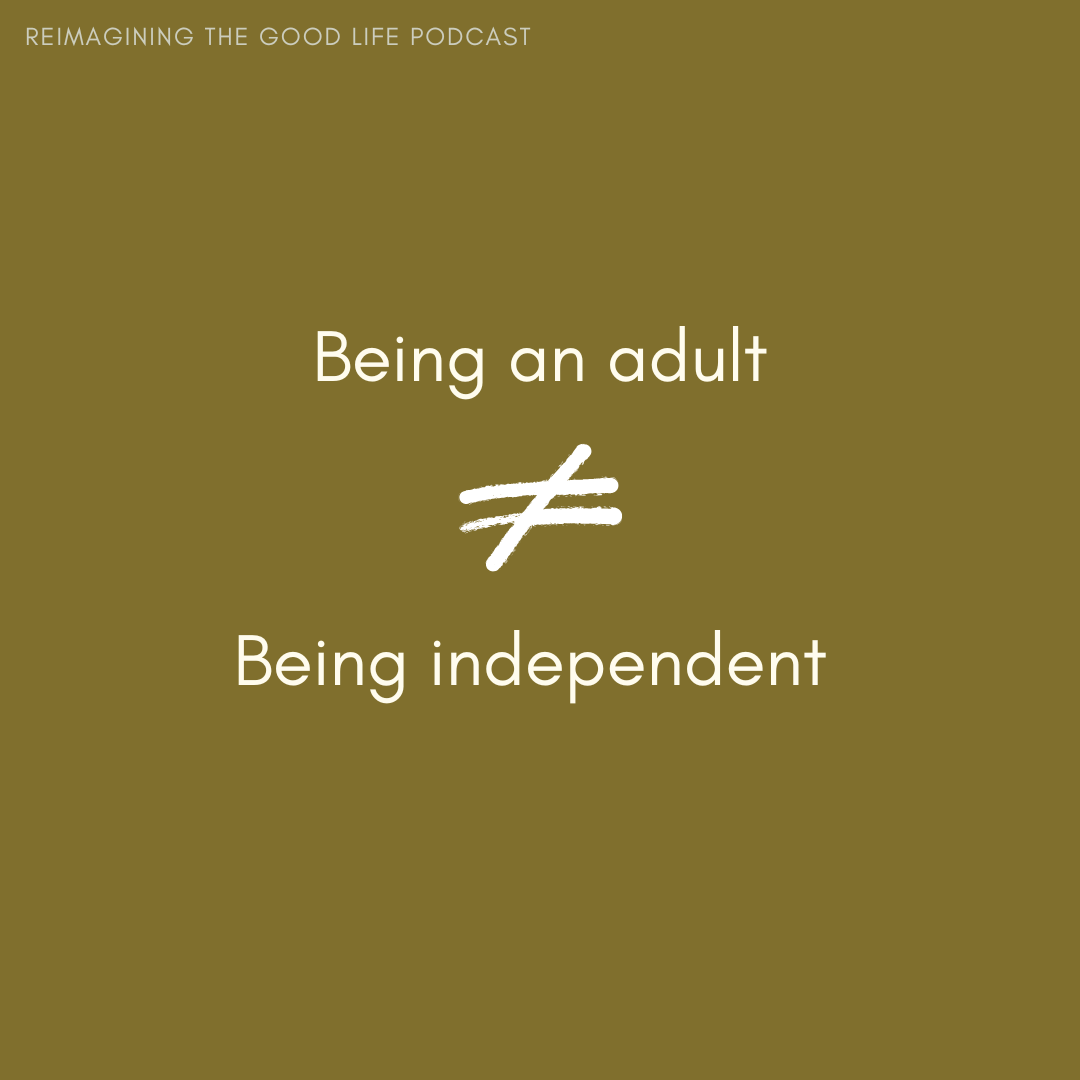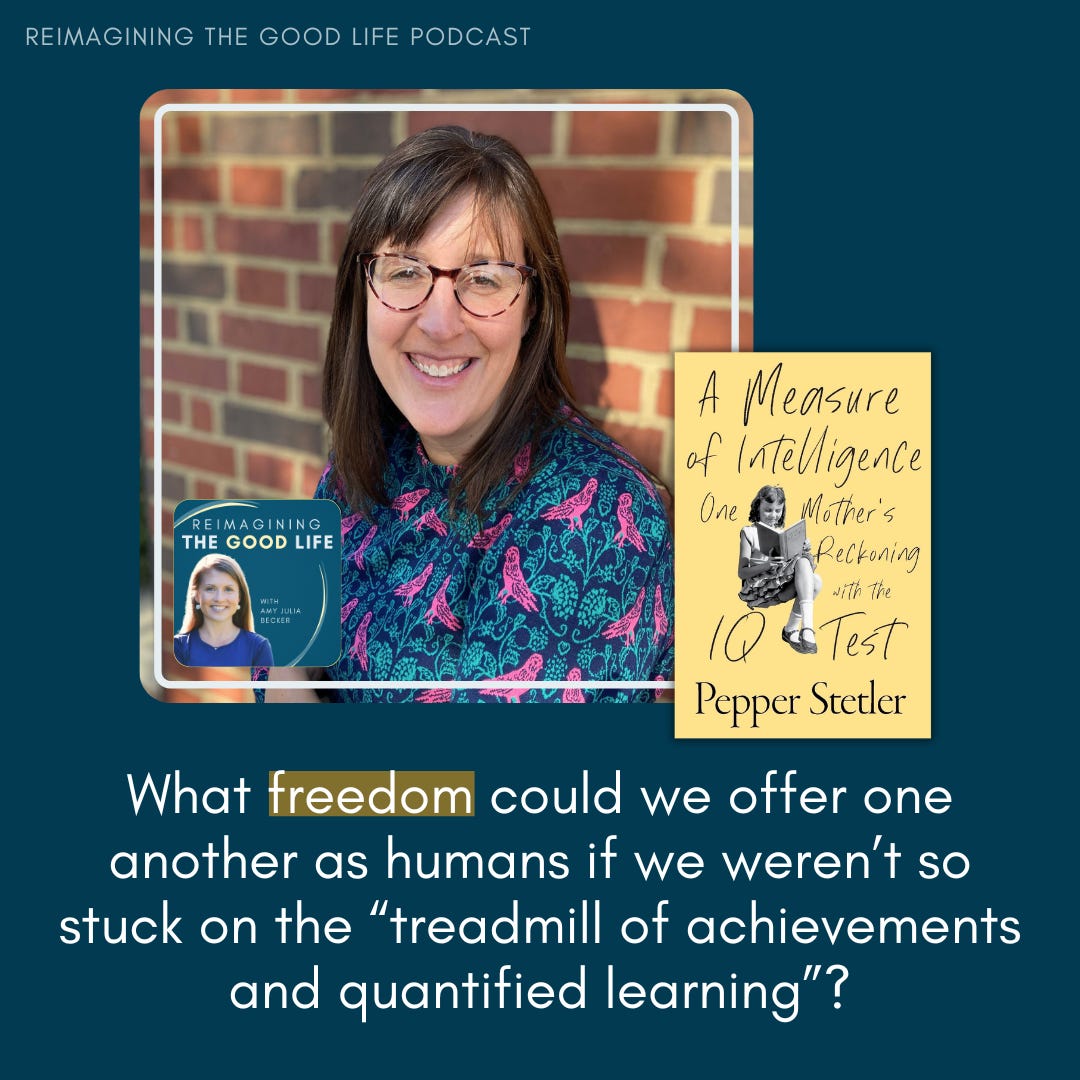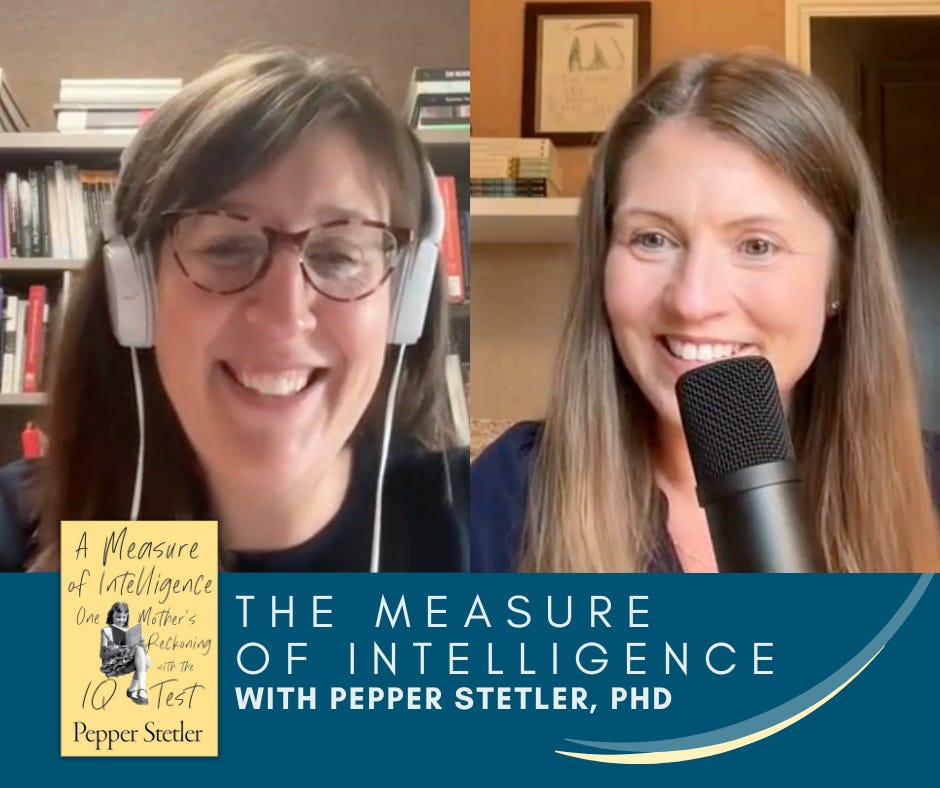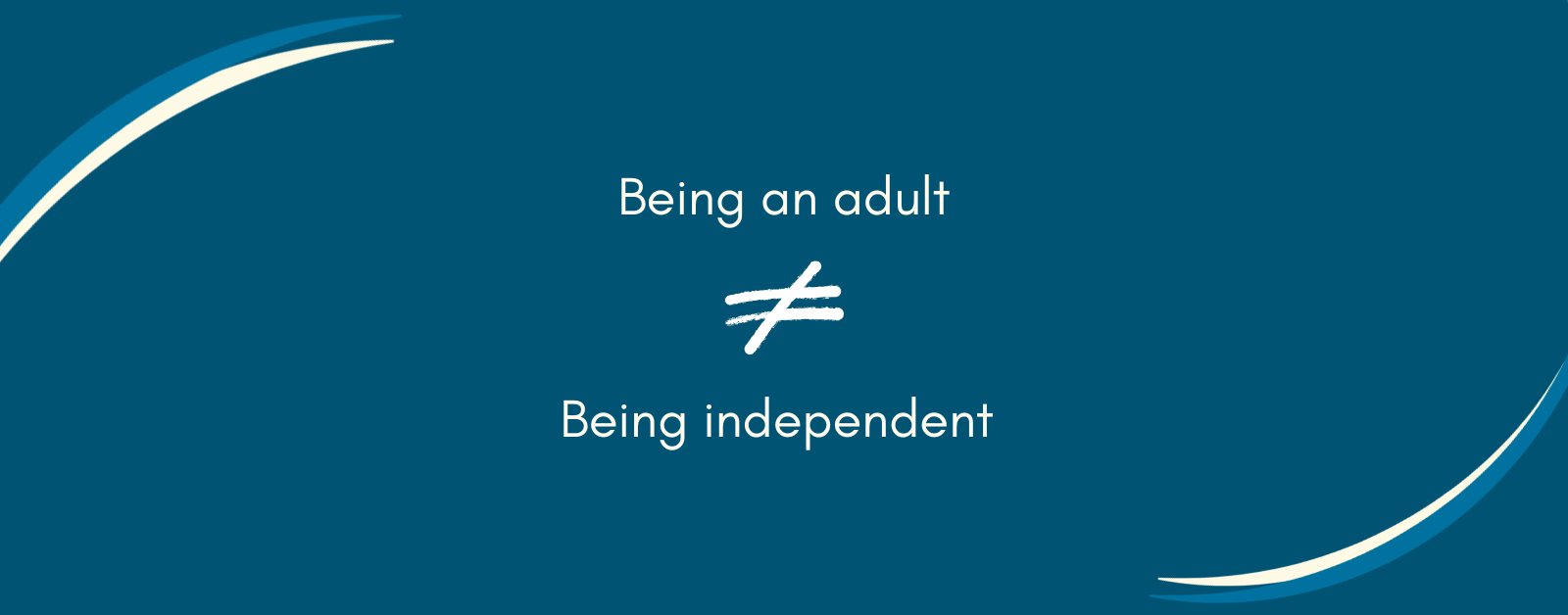Every so often I get asked, “Do you think Penny will live independently?”
I’ve started answering that question about my daughter who has Down syndrome by saying, “I never want her to live independently.”
In reality, I have never lived independently. Life for all of us, if we stop and think about it, is an existence of interdependence. Independence is not my goal for myself, for Penny, or for any of our children.

That said, do I think Penny can live outside of our home? I do, because I think she will be able to develop interdependent relationships with other people.
Interdependence, not independence, is the goal.

My guest on the podcast this week is author and professor Pepper Stetler. In our conversation about measuring intelligence, she says this about independence:
“Being able to do things by yourself is the gold standard of being an adult. That is what being an adult is—being independent. Maybe we don’t think about it that way. Maybe we prioritize community and collaboration and helping one another and respecting everybody’s needs, rather than pushing for independence as the goal of life.”
You can probably already imagine why I loved this conversation and her book!
Dr. Stetler is the author of A Measure of Intelligence: One Mother’s Reckoning with the IQ Test. She shares with me her personal journey navigating the world of IQ testing with her daughter Louisa, who has Down syndrome. Together we explore:
- the historical roots of intelligence assessments
- IQ testing’s societal implications
- the ethical dilemmas the tests present for parents and educators
- how IQ tests shape our understanding of intelligence and the pursuit of a fulfilling life
- ways to challenge conventional notions of achievement and success
“Either you’re in or you’re out.”
You may have noticed that there’s this mindset around disability, or anything that varies from what we consider the norm, that says, “Either you’re in or you’re out.” Instead of shaping a posture of curiosity and possibility, IQ tests often fuel this mindset of exclusion. So why do we measure intelligence?
What freedom could we offer one another as humans if we weren’t so stuck on the “treadmill of achievements and quantified learning”?
This conversation is an illuminating dive into education and societal perceptions around intelligence that you won’t want to miss!

Listen on Apple🎙️ | Listen on Spotify🎙️ | Watch on YouTube🎬
MORE FROM PEPPER:
“The way that we think about intelligence affects everybody. My students in college are still often quite miserable because of the system of intelligence that we have. We’re all shaped by it.”
“Education is supposed to be about helping somebody grow, helping somebody learn to be their happiest and most fulfilled self rather than a kind of placement. It’s become this achievement of a kind of quantified number instead of deep, meaningful learning in other ways.”
“We need to work against a regime of intelligence that gives [my daughter] no space to be herself.”
I’d love to hear from you. How have you found freedom from the “treadmill of achievements”?
Get my reflections on disability, faith, and culture delivered to your inbox each week.
Subscribe here!
MORE WITH AMY JULIA:
- COMMENT MAGAZINE | The Blurring Is Part of the Beauty
- Workshop: Reimagining Family Life with Disability
- FREE RESOURCE: 10 Way to Move Toward a Good Future (especially for families affected by disability)
Let’s stay in touch. Subscribe to my newsletter to receive regular updates and reflections. Follow me on Facebook, Instagram, and YouTube and subscribe to my Reimagining the Good Life podcast.



